Photographs: B Mathur/Reuters Indrani Roy Mitra in Kolkata
Food inflation came down somewhat recently or so say government statistics. However, there seems to be no end to common people's woes.
A simple visit to the local market is a scary experience now. Things that we could purchase for Rs 100 barely a year ago are not available now for even twice the amount. Reason? Prices have just gone through the roof.
But Finance Minister Pranab Mukherjee insists that price rise is not a government failure. He asserts that India's fast economic growth has led to high inflation.
Inflation is gnawing at the nation's entrails and people's appeals to the government have had no impact whatsoever. Measures taken by the Central government have not been able to yield the desired results.
As India desperately gropes for a solution to tide over this terrible state of affairs, rediff.com spoke to a cross section of the common population and asked for their suggestions as to how can the government fight this menace called inflation.
. . .
'I wish we had an election this year'
Image: Hasina Begum.Photographs: Dipak Chakraborty
Hasina Begum
Rag picker
I wish we had an election this year. I wish the political leaders came begging for votes to us this time. I wish the poor like us had the power to topple this government.
Given a chance, we would have thrown the India's present ruling party out of the window. Prices are hitting the sky and the lawmakers are just sitting pretty.
They cannot afford to do that. After all, they are but mere cogs in the wheel called democracy. It is us who elected them to power. And it is their duty to feed us. If they can't, they have no moral right to be hotting the seat of power.
I am an illiterate person -- someone who makes a living out of selling scrap. But I am not bereft of human sensibilities.
It does hurt me when my husband and I cannot buy two square meals a day for our children. Even a couple of years back, we could lead a hunger-free life, at least. Not any more.
Now, meals consisting of only rice and dal are a luxury of us. As parents, we often starve and let our children fill their tummies. It's a pathetic situation.
Since I am not a knowledgeable person, I won't be able to suggest concrete steps to the government to counter this crisis of inflation.
But, as a mother and a wife, I do have the following tips for our honourable Finance Minister Pranab Mukherjee:
- When prices rise, I am forced to curtail my household budget. Can't you do the same?
- I set aside a meagre part of our earnings as a rain cheque and use it in crisis. Doesn't our government have some such funds that can be used to buy foodgrains?
- When prices escalate, we try and restrain our expenses. Can't the government do the same? Can't you put a ban on mindless expenditure exercised by your colleagues?
- We often hear about foodgrain rotting at the government-owned godowns. Can't those stocks be released now to fight price rise?
These plans may seem too simplistic for such a complex problem. I am sure a person of Mr Mukherjee's calibre knows how to tackle the emergency. My sole request to him: please act fast before people like us die of hunger.
. . .
'Inflation is a multi-headed monster'
Image: Somnath Banerjee.Photographs: Dipak Chakraborty
Somnath Banerjee
Teacher
The inflation, according to me, is a multi-headed monster that cannot be controlled easily. Prices of essential commodities rise as a result of a gap between demand and supply of the same.
The Reserve Bank of India has several monetary tools with the help of which it can put brakes on any unbridled rise in demand for essential commodities.
There can be two reasons for any shortfall in supply: natural and manmade. Natural shortfall in supply is caused by environmental reasons -- drought, flood, etc. Manmade deficiency in supply can be traced to mindless hoarding by stockists and black marketeers.
This is where the government needs to step in.
It is the government's duty to ensure that there is no reckless hoarding of foodgrains by traders and middlemen at the cost of the farmers and the common people.
There should not be a huge gap between the cost price and selling price of agricultural products.
To guarantee proper distribution of essential commodities among the common people, the government has to improve the public distribution system drastically.
Last, but not the least, in an inflationary economy, it is the government's duty to put an end to unnecessary and meaningless expenditure.
. . .
'Govt has to bring down the petro price'
Image: Bablu Jha.Photographs: Dipak Chakraborty
Bablu Jha
Taxi owner-cum-driver
It's really sad that though a lot is being said about rising prices of essential commodities, nothing is being done.
All the hue and cry over this issue is ending in a big zero and people like us, who make their living driving cabs, are in dire straits.
The first and the foremost step that the government should take is to bring down the prices of the petro products at the earliest.
Many would suggest that stocks of foodgrains should be released and that mindless hoarding should be stopped.
But if you ask me, I think a rise in prices of petro products has been mainly responsible in worsening an already bad situation.
Why can't the government grant more subsidy if it benefits the people? It often takes a lot of steps for the sake of its leaders and lawmakers.
Therefore, why can't it take a positive step that would ease the burden of the very people who brought it to power?
. . .
'Root cause is lack of govt control'
Image: Vivek L Wadhawan.Photographs: Dipak Chakraborty
Vivek L Wadhawan
Businessman
The root cause of price rise, if you ask me, lies in the lack of government control.
You can wake up someone who is in deep slumber but you can never wake someone who is pretending to be asleep.
Our government belongs to the last category.
When the prices were rising, it was not paying any heed and now that they have spiralled out of control, it is at a loss and doesn't know what needs to be done.
Common people have been crying themselves hoarse over mindless hoarding by black marketeers. But has the government done anything? NO!
It sat pretty. Economists and analysts have been appealing time and again to release the Food Corporation of India stocks into the market to regulate supply of foodgrains. Yet the government failed to act in time.
I just cannot fathom this inertness. Is it intentional?
Are we to suppose that the government leaders and officials are hand in glove with crooked businessmen and they want this food crisis and subsequent inflation to stay for their vested interests?
It is time the representatives of the people came up with some convincing answers.
. . .
'This useless govt must go'
Image: Bijoy Sarkar.Photographs: Dipak Chakraborty
Bijoy Sarkar
Photographer-cum-editor
Ever since this United Progressive Alliance government came to power, common people have been suffering.
Even in the past whenever a Congress-led coalition had come to power, it had escalated the prices. Therefore, the reason has to be embedded in the governance by this party.
Things were not this bad during the National Democratic Alliance regime led by the Bharatiya Janata Party. I am not suggesting that the NDA leaders were saints. But then at least they did not force the people to starve to death.
This government is pushing things out of control. The poor and the marginalised are just being forced to die of hunger.
Things have come to such a state that even dal and sabzi have become a luxury.
As a citizen of India, I feel ashamed of myself and my country.
My suggestion on how price rise can be curbed? Throw this government out and things will improve drastically.
. . .
'Wish I could buy fish for my kids every day'
Image: Minoti Banerjee.Photographs: Dipak Chakraborty
Minoti Banerjee
Housemaid
I earn only Rs 3,200 a month. With this meagre 'salary', I have to feed my family of four. I have three kids and a husband, who is handicapped and can't contribute.
Even a year ago, I could somehow make the both ends meet with this money but now my kids can barely have two square meals a day.
My youngest son is very fond of non-vegetarian food but at present we can't afford to have even fish, let alone red meat or chicken.
At times, they complain but I pretend to ignore. I get 'free lunch' at the place of my work and often I take home the non-vegetarian items they offer me.
I have never been to school and hence am not in a position to offer suggestions to the government to curb price rise.
But as a representative of the poor people of this country, all I can say is that though we don't have the money or the power, we do vote, don't we?
Therefore, can't the government increase the supply of foodgrains in the market so that the staple diet of the poor -- a modest combination of rice and dal -- becomes affordable?
We can survive even if we don't have fish but at least rice and dal should not go beyond our reach.
. . .
'Rotting of foodgrain has to stop'
Image: Sunil Pandey.Photographs: Dipak Chakraborty
Sunil Pandey
Publisher
Inflation has always been a common phenomenon in our country. Hence, I don't understand the reason for this hue and cry over the issue.
In an open economy, price rise will happen and we have to take it in our strides.
During the National Democratic Alliance regime, prices rose as well but since people have very short memory, they don't remember that.
No one is saying that the prices of essential commodities have not gone up recently but there is no reason to feel alarmed.
Efficient minds are at the helm and they will be able to take some effective steps to counter the issue.
However, as a tax paying citizen of the country, I have the following suggestions for our honourable Finance Minister Pranab Mukherjee:
- Effective monitoring of the public distribution system.
- Prevention of mindless hoarding of foodgrains.
- Counter-measures to stop black marketeering.
- Releasing foodgrains from Food Corporation of India godowns.
- More regulatory steps by the Reserve Bank of India to put brakes on excess supply of money in the market.
- Adopting anti-drought measures.

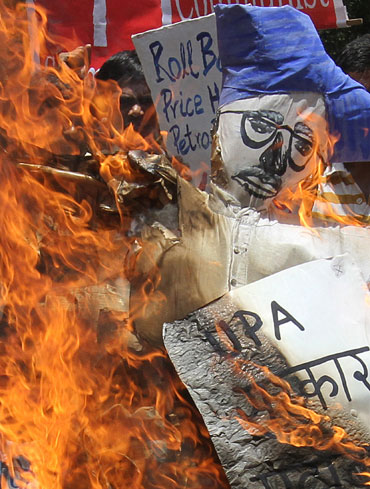
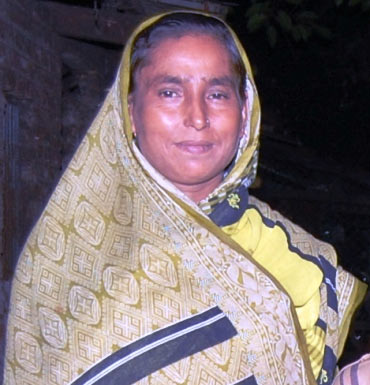
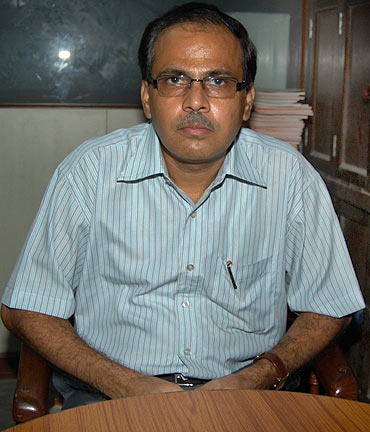
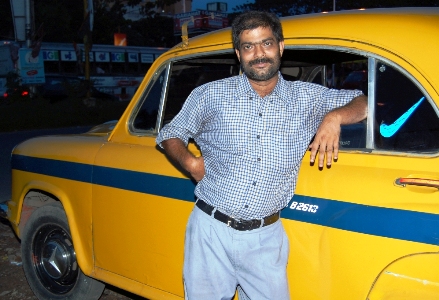
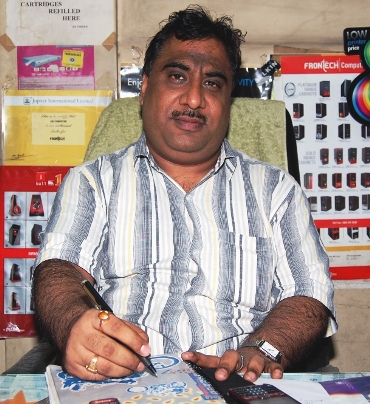
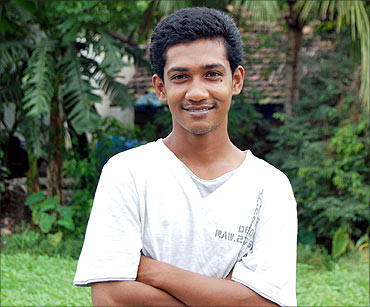
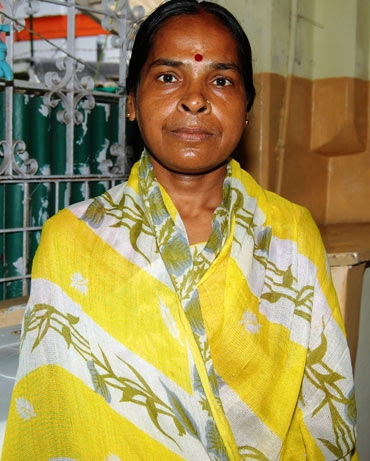
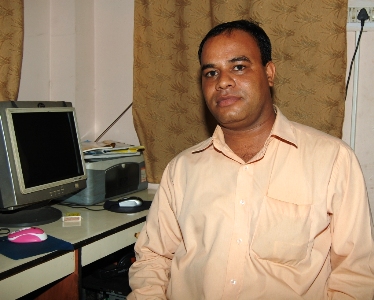
article